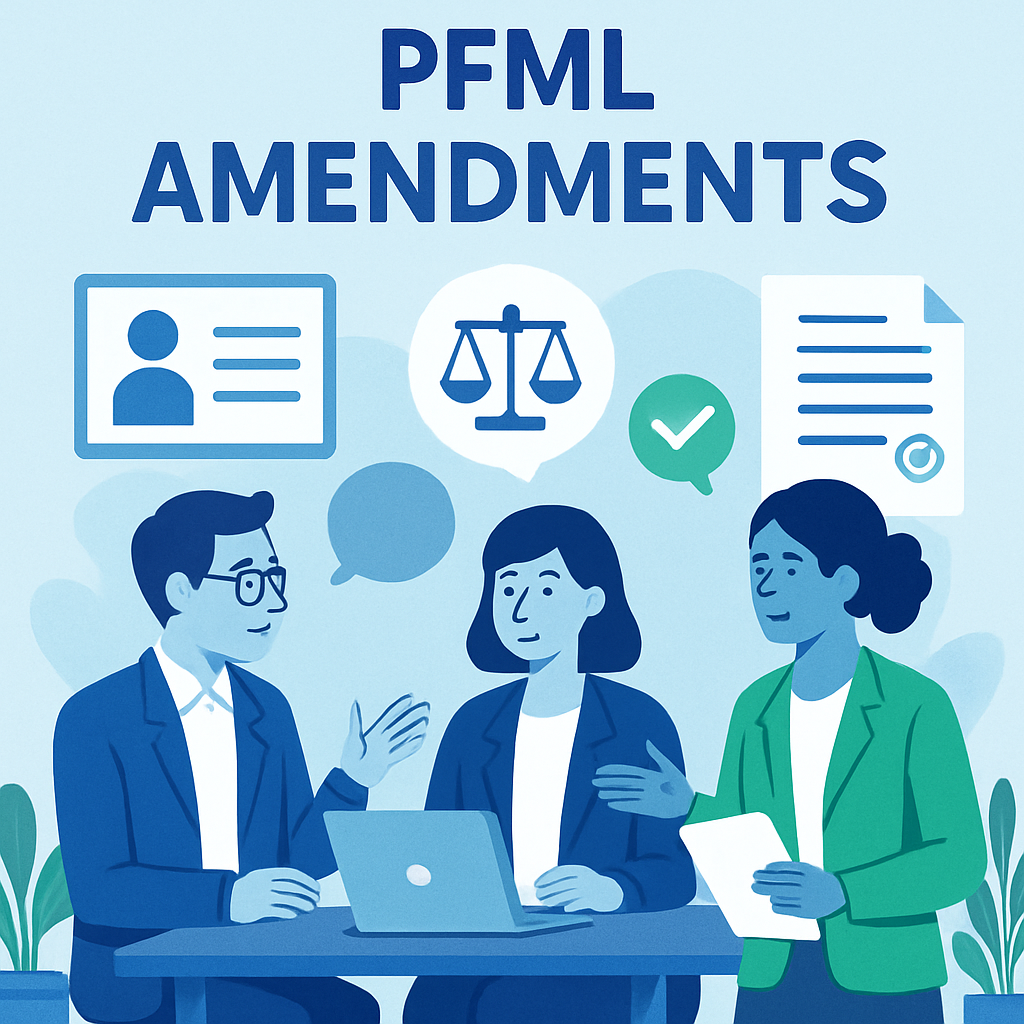Significant PFML Changes Coming to Washington State in 2026
Starting January 1, 2026, Washington State employers will face significant updates to the Paid Family & Medical Leave (PFML) program under House Bill...
3 min read
 Beth Touschner
:
Jun 22, 2023 9:30:10 AM
Beth Touschner
:
Jun 22, 2023 9:30:10 AM

Update: In late June, the Archbright Blog told you about a case to watch out for, Groff v. DeJoy, from the Supreme Court’s October 2022 term. It was anticipated that the Court would increase the burden on employers in considering religious accommodation requests protected by Title VII. On June 29, 2023, the Court issued its ruling.
As expected, the Court “clarified the Title VII undue-hardship standard” by invalidating the “de minimis” burden previously discussed in Hardison, which had been adopted by lower courts in the years since that opinion was released. The unanimous Court, in an opinion by Justice Alito, found that “‘undue hardship’ is shown when a burden is substantial in the overall context of an employer’s business.” Although the Court came short of adopting the ADA’s “undue hardship” standard, like the ADA, it noted that whether the burden is met is a “fact-specific inquiry.” Employers must address each situation on a case-by-case basis. To deny a religious accommodation request, employers cannot rely solely on an accommodation’s effect on co-workers, and they must show “substantial additional costs” or “substantial expenditures.”
In response to the Court’s ruling, employers may see an increase in religious accommodation requests. While the Court did not adopt the EEOC’s guidance on religious accommodations, it noted that “a good deal of the EEOC’s guidance in this area is sensible and will, in all likelihood, be unaffected by our clarifying decision today.” However, updated EEOC guidance is likely forthcoming. In addition to EEOC guidance, Archbright members can expect to see updated resources on mozzo.
The fall and winter of 2021 was a time of rapid change for employers. With the introduction of local, state, federal, and private-sector COVID-19 vaccine mandates, HR professionals were scrambling to respond to an influx of employee questions related to religious accommodation exemptions to the mandates.
Now that most vaccine mandates are no longer in force, the number of such requests has tapered off. However, employers must remain familiar with the legal standard for considering an employee's request for a religious accommodation. That standard may soon change when the U.S. Supreme Court rules on a pending case, Groff v. DeJoy, No. 22-174 (U.S. Aug. 25, 2022). A ruling is expected sometime this month.
Under Title VII, employers must accommodate an employee's sincerely held religious beliefs unless doing so creates an "undue hardship" for the employer. What some employers may not realize is that the "undue hardship" standard for religious accommodation is quite different from the undue hardship standard applied in other employment laws, including the Americans with Disabilities Act (ADA), Uniformed Services Employment and Reemployment Rights Act (USERRA), and the Affordable Care Act (ACA).
For almost 50 years, since the Court ruled in Trans World Airlines, Inc. v. Hardison, 432 U.S. 63 (1977), courts and employers have applied a "more than a de minimis cost" standard for considering religious accommodation requests. In other words, if the employer could show that the employee's religious accommodation had a more than de minimis, i.e., very small or trivial cost to the employer's business, it did not have to provide the requested accommodation. In contrast, the undue hardship standard under the ADA, USERRA, and the ACA (in terms of providing break time for nursing parents) meant that employers must accommodate employees "unless doing so would impose 'significant difficulty or expense' in light of the employer's financial resources, the number of individuals it employs, and the nature of its operations and facilities." Small v. Memphis Light, Gas & Water, 209 L. Ed. 2d 538, 141 S. Ct. 1227, 1228 (2021).
The Supreme Court, in recent years, has heavily criticized the "de minimis" standard applied to religious accommodation requests, stating that it is too low. Opponents of the Hardison/de minimis standard argue that it allows employers to evade Title VII’s religious protections because they can easily show that the requested accommodation has some slight cost to its operations. For that reason, many commentators expect the Groff opinion to increase the burden on employers in some way.
The case before the Court involves former U.S. Postal Service (USPS) carrier Gerald Groff, a Sunday Sabbath observer whose religious beliefs dictate that he cannot work on Sundays. Several years into his employment, USPS contracted with Amazon to deliver packages on Sundays. Groff informed his employer of his religious beliefs and inability to work Sundays. The employer initially offered several accommodations. He was offered the option to attend religious services on Sunday morning and report to work afterward. Later, USPS sought other employees to cover the Sunday shifts for Mr. Groff. This worked for a time, but eventually, staffing changes and soaring deliveries led USPS to need to schedule Mr. Groff for Sunday work. USPS also stated that other workers were complaining about working more weekend shifts. Mr. Groff attempted to make a lateral transfer, but that position also required Sunday work. When he failed to show up for his Sunday shifts, Mr. Groff received progressive discipline. He ultimately resigned and brought suit under Title VII, alleging USPS did not accommodate his sincerely held religious beliefs.
A ruling on the case is expected sometime in June, so employers should keep an eye out for news related to the outcome. Archbright will update members as needed, including any impacts to religious accommodation policies and processes.
-1.png)
Starting January 1, 2026, Washington State employers will face significant updates to the Paid Family & Medical Leave (PFML) program under House Bill...

On December 5, 2025, the Washington State Employment Security Department (ESD) adopted new and amended rules regarding the 2025 Paid Family and...

HR professionals rarely wear capes, but their impact is nothing short of heroic. In today’s workplace—where change is constant and expectations are...